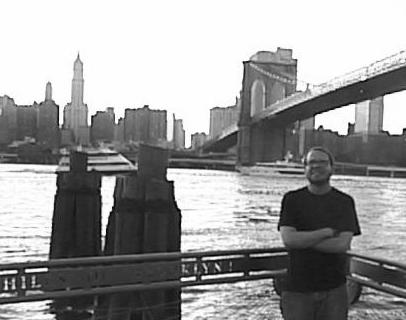Radio loves to carry around a blanket, a soft, warm, baby blue or pink cotton blanki that it can hold onto while it gazes into the dark unknown that is its future. The blanket is the most reliable and trusted security tool that it holds, and it's so loved that it takes on a life of its own, like Raggidy Ann or Frosty the Snow Man. Though radio likes to give its blanket more hip and modern names like Jack, Sam, Bob, doug or Dave.
On July 26, 2006, WILT 98.7 FM, Wilmington's former oldies station, launched its WILL FOMRAT, which is one of a great number of Variety Hits formats around the country. The format focuses on a mix of top hit singles from the 1970s, 80s, 90s and today. It's one of the largest growing formats in the country, and probably one of the most recognizable when you tune in the radio, listening to the sound of a prerecorded voice telling you that the rules of radio have been broken, and now you're hearing what "We want to hear." Though the format seems more like a last resort for radio, throwing everything it can throw at you in hopes that you'll stick around for the next song, never knowing exactly what it might turn out to be.
The idea of playing a variety of hits throughout a variety of genres is nothing new. In 1990, Orlando broke into a similar format on WBMO. For years now, Chicago has made a commercial success with WXRT, which plays a mix of rock and popular hits with the sounds of artists you normally wouldn't hear on traditional rock or pop stations. What both these stations have, which rises them above the bar over the new groiwng format, is the lack of a name and the feeling of sprobably the one thing that can keep radio alive. That is a feeling of being local, of not turning on Jack FM in New York city and hearing the same thing on Jack FM in Kodiak, Alaska, the formats of both stations being programmed in Dallas, Texas.
After the deregulation of radio in 1996, several groups went around the country buying up all the stations they could. It only took a matter of years before the mainstream was streamlined, replacing DJs with computers. Not long after that came the wave of the numbing sound of Variety Hits, not so much the singles being played, but the sound of the announcer trying to become your best friend, to sell you on the fact that they are, indeed, playing what "you want to hear," as if they've hijacked your IPOD and have held hostage all of your playlists.
The format does have some benefits, bringing a diverse sound to many parts of America that are not so Diverse. It might be piped in via satellite, like westwood One's SAM FM. But at least it's not the same five songs played in heavy rotation on other top 40 stations. Nevertheless, the format seems to think that New Yorkers walk the same line as people in Omaha or Ft. Worth.
In 2001, I spent twenty days traveling ten thousand miles on a Greyhound bus listening to America. My trip had me archiving radio from Portland, ME to Portland, OR. It was while I was on the trip that I began to hear just how diverse America was. Cultures changed as frequent as Interstate exits. Small towns might have awakened to the sounds of John Boy and Billy or Bob and Tom. But they all had their favorite weather man, DJ or evening news anchor on the local television news. Radio came into their homes, their cars, where ever they traveled or stayed. Anchors and DJs were the voice of familiarity they turned to when storms came, when terror struck, or when their home town team made it to the play-offs. But where is Jack, Bob, Doug or Sam in their lives? How is he more of a friend than the voice that tells you to be careful while stepping off of the moving sidewalks at the airport?
The chief problem with so many American stations clinging to the format of your best friend meets your IPOD is that it fuses a good idea of radio format with the bad idea of trying to take away the personal touch radio holds onto. The obscure singles it puts in rotation call back memories of childhood years, of little league games and summer vacations, of times when radio played a song during an important milestone in a person's life. But it then follows it up with a lifeless DJ, the same voice that follows you along the Interstate as you travel from town to town. Rest assured that these formats are equally tested and retested before focus groups. So when they tell you they're playing what "We want to hear," saying it like they're your friend from the old junior high years, ask yourself who exactly the "we" are. Radio hpes that by giving it a name you might have given your children in the mid 1990s, then you'll let it into your living room, have it stay for tea, and then maybe introduce it to your daughter. That's the security blanket radio wants, the idea that you'll fall for it like you fell for your sweetheart in the ninth grade. But remember, a station that will call itself "new" for over a year doesn't want to be your friend. It just wants you to listen to its commercials.


0 Comments:
Post a Comment
<< Home